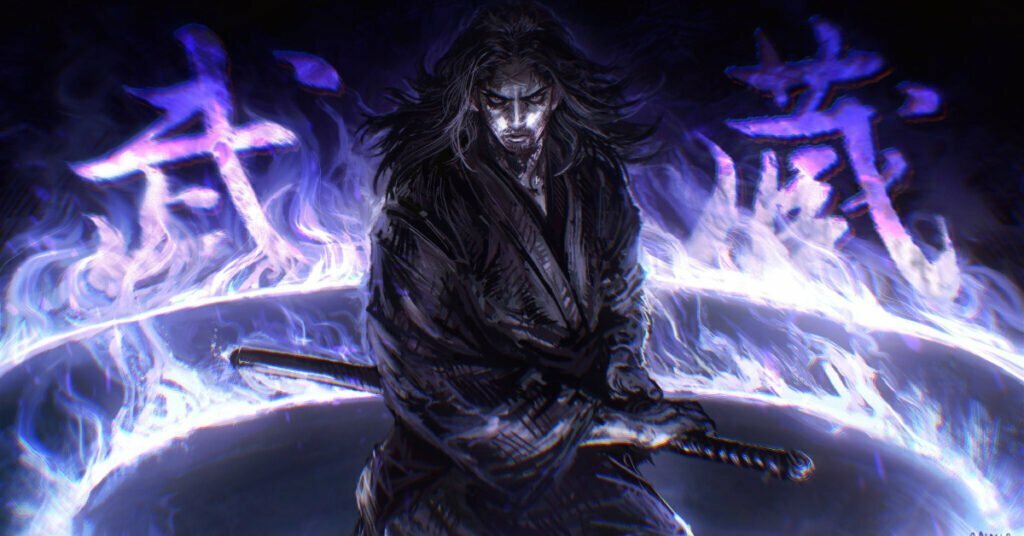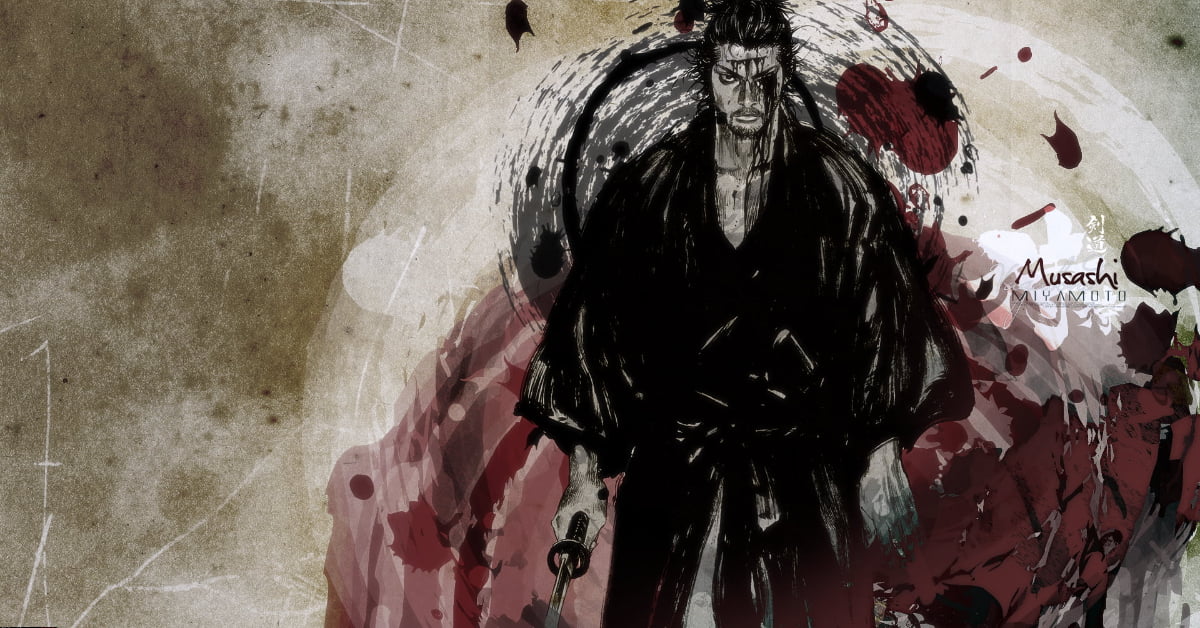Vagabond manga: In the realm of manga, wherein tales ship us to breathtaking worlds, “Vagabond” emerges as a masterpiece that not only dazzles the attention but additionally enriches the thoughts and spirit. Within its meticulously inked pages, crafted by the hand of Takehiko Inoue, lies a narrative of unparalleled depth and wisdom. Drawing inspiration from Eiji Yoshikawa’s “Musashi,” this ancient saga follows the footfalls of Miyamoto Musashi, the mythical Japanese swordsman.
Step with us into the area of “Vagabond,” a global in which the conflict of blades is now famous for not only the prowess of warriors but also the intricacies of the human experience.
Vagabond Manga: Lessons Through Samurai Wisdom
Why you should read Vagabond: In a world saturated with stories, “Vagabond” stands tall as a beacon of enlightenment. Why you ought to study “Vagabond” isn’t only a question of enjoyment; it is an inquiry into the corridors of self-discovery. Within its pages, the tapestry of samurai ethos and existential exploration comes alive, whispering age-old truths that resonate with contemporary seekers. So, delve into the arena of Musashi and swordplay and emerge with not just a manga study but an existence lesson determined.
Picture this: a journey that spans centuries, guided no longer with the aid of a compass but by the inked strokes of a masterful manga. “Vagabond” isn’t always only a collection of pages—it’s a lantern illuminating the labyrinth of life. As you navigate the shiny panels and delve into the lives of samurai, you’re now not simply analyzing; you are soaking up profound teachings that whisper from Musashi’s blade in your soul.
As we accompany Musashi through the ebb and go with the flow of life, we discover ourselves walking a parallel path of mastery. In the heart of “Vagabond,” the teachings of the samurai go beyond their time and discover resonance in the modern-day world. Through Musashi’s trials, triumphs, and introspections, we are invited to ponder our non-public lives. This manga becomes a tapestry woven with threads of region, purpose, and the eternal quest for truth.
Why do you have to read “Vagabond”? Because inside its pages, you may now encounter not simply battles and conquests but a blueprint for tackling the complexities of your personal existence. The quest for perfection, the expertise of duality, the pursuit of purpose—those issues are not constrained to feudal Japan; they go beyond time and tradition, offering awareness that they are as applicable today as they were centuries ago.
With each come across Musashi has and each assignment he overcomes, you are invited to introspect. Can you technique your battles with identical, unyielding willpower? Can you wield your metaphorical sword of self-development with identical finesse? “Vagabond” isn’t simply a window into history; it is a reflection reflecting your adventure.
In the dance of ink and parchment, Musashi’s journey becomes your accomplice. The cuts he inflicts and endures end up being allegories for the scars lifestyles etch on you. As he refines his technique, you are encouraged to refine your own. As he gazes at the moonlit sky, you are reminded of the sizeable cosmos inside you
So, why examine “Vagabond”? Because as you switch the pages, you’ll traverse the landscapes of valor and vulnerability, and in doing so, you’ll find fragments of your personal tale. It’s not just a manga; it is a mentor, a sage, a friend—an invitation to research now—not pretty much Musashi, but approximately yourself. It’s a map that charts the way to become a nicer version of yourself, etching the ethos of the samurai into your heart. In each panel, each sentence, and every clash of steel, “Vagabond” imparts the most crucial lesson of all: the art of dwelling is inextricably woven with the art of getting to know.

From the Sword to the Soul: Unearthing Profound Themes
“Vagabond” isn’t always your normal tale of the journey; it is a profound excavation of the human revel. As you adventure with Musashi, you’re immersed in the artistry of Takehiko Inoue’s skillful strokes. But beyond the aesthetics, the manga weaves a tapestry of troubles that aren’t restrained to any era. The juxtaposition of electricity and vulnerability, the dance between chaos and calm, and the no-means-finishing pursuit of mastery resonate deep within us all. With each page, you’re invited to meditate on the sunglasses of lifestyles, drawing parallels between Musashi’s battles and your non-public triumphs and trials.
Mortal Strife and Inner Turmoil: The Dance of Duality
In “Vagabond,” the battles that rage upon the pages are not mere skirmishes; they’re metaphors for the battles each person faces within themselves. The dance of blades is mirrored within the dance of dualities—the mild and dark, bravery and worry, victory and defeat—that humans enjoy. As Musashi takes on fighters, he is additionally confronting his very own shadows, inviting us to mirror the invisible conflicts that shape our personal lives.
Serenity Amidst Chaos: The Zen of Existence
Amidst the chaos of clashing metallics and the flurry of emotions, “Vagabond” has famous moments of serene introspection that reflect the Zen philosophies of the samurai. The interaction between movement and stillness reflects the dichotomy of existence itself. Through the stillness of Musashi’s gaze on a tranquil moonlit night, you’re beckoned to find solace inside the midst of existence’s tempests, echoing the concept that even amidst the fiercest storms, there is a haven of calm inside.
Crafting the Self: Forging Resilience and Purpose
As Musashi hones his swordsmanship, he is also chiseling away at the tough edges of his non-public persona. In the pages of “Vagabond,” you’ll witness the transformation of a wandering vagrant proper into a mythical swordsman. This adventure from uncertainty to mastery serves as an amazing reminder of the transformative electricity of strength of mind, place, and continuing pursuit of purpose—a lesson that transcends time and resonates deeply in our very personal quests for self-improvement.
Beyond the Sword: Life’s Lessons Etched in Ink
Ultimately, “Vagabond” isn’t always pretty a whole lot of sharpened metal; it is about polishing the thoughts and the spirit. The problems inside its narrative are not constrained to records; they may be the echoes of truths that ring for the duration of centuries. As you traverse its pages, you’ll witness the intersection of honor and vulnerability, resilience and boom, every stroke of ink delivering no longer just a visual spectacle but a lifestyle lesson prepared to be absorbed.
Ultimately, “Vagabond” isn’t always a whole lot of sharpened metal; it is about polishing the thoughts and the spirit. The problems inside its narrative are not constrained to records; they may be the echoes of truths that ring for the duration of centuries. As you traverse its pages, you’ll witness the intersection of honor and vulnerability, resilience and boom, every stroke of ink delivering no longer just a visual spectacle but a lifestyle lesson prepared to be absorbed.
conclusion
And that brings us to the final chapter of our journey through the intricate themes of “Vagabond.” As we conclude this exploration, it’s evident that this manga isn’t just a captivating tale—it’s a treasure trove of wisdom and insight waiting to be uncovered. From the clash of blades to the depths of self-discovery, “Vagabond” invites us to traverse its landscapes of emotion, philosophy, and human experience.
Jishant is a passionate entertainment author who’s deeply immersed in the world of movies, TV shows, music, and pop culture. With over a decade of experience, he’s contributed articles to well-known websites, showcasing his extensive knowledge in the entertainment niche.
Jishant’s true passion lies in being a devoted “weeb” at heart. He delights in crafting reviews that cut straight to the core, offering unbiased assessments of what’s good and what falls short. He’s a master at presenting his insights in a neutral tone, always mindful of respecting everyone’s feelings.
His mission is simple: to share his unfiltered perspective on the entertainment he loves, providing fellow enthusiasts with honest and relatable critiques. For more on Jishant and his reviews, check out his social media pages

